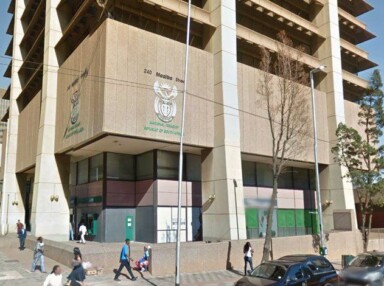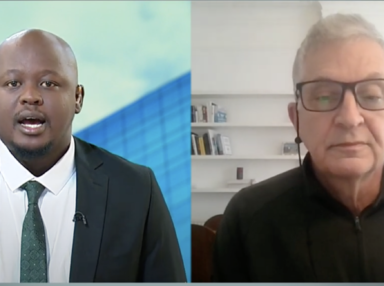Democracy, Power and Evidence-Informed Policy-Making: The Case of Public Service Reform in South Africa
The New South Institute (NSI) is pleased to announce the release of a new working paper by our Co-Founder and Director, Ivor Chipkin, in collaboration with the University of Bristol. The paper, titled “Democracy, Power and Evidence-Informed Policy-Making: The Case of Public Service Reform in South Africa”, provides a comprehensive analysis of the complexities surrounding public administration and policy reform in South Africa.
This case study is part of a larger research project commissioned by On Think Tanks, which examines the use of scientific and expert evidence in policymaking across various national and sectoral contexts. In addition to South Africa, this series features studies on Benin’s food security and nutrition sector, climate-resilient urban policy in Tanzania, and South Sudan’s national budget process. The research was made possible by the generous support of the William and Flora Hewlett Foundation and conducted in collaboration with OTT Consulting and other African think tanks, including ACED and the African Centre for Cities.
Key Topics Covered in the Paper:
- Historical Evolution of Policy-Making in South Africa: The paper traces the shift from a bureaucratic model to one dominated by managerial approaches, highlighting the inherent tensions this transition has caused.
- Political Control Over Public Administration: It examines the legislative and practical mechanisms that have allowed for significant political influence over administrative decisions, particularly through the Public Service Act of 1994.
- The Political-Administrative Interface: A detailed exploration of the conflicts between political leaders and senior officials, and how these have impacted governance and service delivery.
- Epistemic vs. Deontic Policy Communities: Introducing the concepts of epistemic communities (driven by evidence and analysis) and deontic communities (focused on political power), the paper analyzes how these dynamics have played out in South Africa.
- State Capture and Its Aftermath: An examination of how state capture under Jacob Zuma’s presidency exemplifies the dangers of politicized administrations and the ongoing struggle to depoliticize and professionalize the public sector.
- Recent Reforms and Future Prospects: The paper discusses recent legislative efforts aimed at reducing political control over public service appointments and enhancing the autonomy and capacity of public managers.
The findings of this case study not only provide insights into the South African context but also contribute to a larger research initiative by the University of Bristol, aimed at informing evidence use in international policymaking, particularly within the United Nations General Assembly.
We invite policymakers, researchers, and anyone interested in the intricacies of public administration and reform to download and read the full paper.

Broader Collaboration with On Think Tanks:
The NSI’s partnership with On Think Tanks extends beyond this working paper. As part of our ongoing collaboration, NSI will also participate in the upcoming OTT Conference 2025, hosted in Johannesburg. This prestigious event, organized in partnership with the South African Institute of International Affairs (SAIIA), will gather think tank leaders, funders, and policy experts from around the globe to discuss and promote evidence-informed policymaking.
The OTT Conference 2025 is a collaborative effort that includes contributions from the Institute for Security Studies (ISS), Southern Hemisphere, and the AUDA-NEPAD Africa Policy Bridge Tank. This event underscores the extensive network and cooperative spirit within the global think tank community.
For more information about the conference and to register your interest, please visit the OTT Conference 2025 page.



